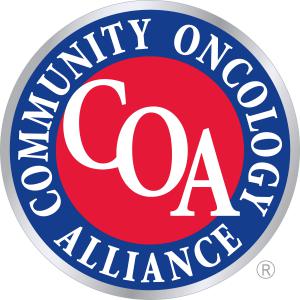Oncology Thought Leaders Share Solutions to Prior Authorization Burdens in Oncology
COA-organized working group identifies pain points in current system, lists recommendations to fix system for the benefit of patients, providers, and payers.
WASHINGTON, D.C., UNITED STATES, December 15, 2021 /EINPresswire.com/ -- Prior authorizations are a growing burden in oncology, taking increasingly large amounts of office hours and practice and provider manpower to navigate while patients suffer unnecessary delays in treatment and medication access. Seeking to address the longstanding burden of prior authorization, the Community Oncology Alliance (COA) brought together a working group to review the issue and develop a set of recommendations for easing the load of prior authorizations while maintaining their function as regulatory and safety checks.A new COA white paper “Prior Authorizations: Where Are We and Where Can We Go?”, summarizes the group’s work for payers and providers. The working group was comprised of 10 clinical and administrative experts from diverse community oncology practices, payer care management contractors, and nonprofits across the country. Capturing the outcome of five virtual discussions throughout 2020 and 2021, the paper reviews the current prior administration landscape from payer and provider perspective, offering a balanced look each side’s arguments for and against prior authorization.
The workgroup noted that prior authorization guidelines for public insurance programs, such as Medicare Parts C and D, are strict and provide multiple avenues for the submission of prior authorization requests, including phone, fax or website. Additionally, Medicare is required to accept requests 24/7, has processes for appeals and expedited requests, and requires partial or full denials to be completed by a licensed health care professional.
Although many private insurers follow Medicare prior authorization guidelines, they are not required to by law. This gap in expectations can lead to unreasonable requests on physicians that delay treatment and hurt patients’ recovery.
To address the issue, the paper offers guidelines for both payers and providers to streamline and synchronize prior authorization systems. Among the recommendations are creating prior authorization systems using provider feedback; exempting biosimilars from preferred drug list requirements; filing complaints related to the process itself, not specific patient cases; and establishing a working knowledge of the Medicare guidelines mentioned above.
Acknowledging a common issue with peer-to-peer reviews for prior authorization appeals, the workgroup agreed that payers should provide oncologists for all oncology-related peer-to-peer conversations. At the same time, providers should ensure the appropriate administrative personnel are available for these discussions.
The full white paper is available on the COA website (https://communityoncology.org/prior-authorizations-where-are-we-and-where-can-we-go-observations-from-a-working-group-of-leaders-in-the-oncology-and-payer-space/)
About the Community Oncology Alliance
The Community Oncology Alliance (COA) is a non-profit organization dedicated to advocating for community oncology practices and, most importantly, the patients they serve. COA is the only organization dedicated solely to community oncology where the majority of Americans with cancer are treated. The mission of COA is to ensure that patients with cancer receive quality, affordable, and accessible cancer care in their own communities. More than 1.5 million people in the United States are diagnosed with cancer each year and deaths from the disease have been steadily declining due to earlier detection, diagnosis, and treatment. Learn more about COA at www.communityoncology.org.
Nicolas Ferreyros
Community Oncology Alliance (COA)
+13045411223 ext.
email us here
Visit us on social media:
Facebook
Twitter
LinkedIn

